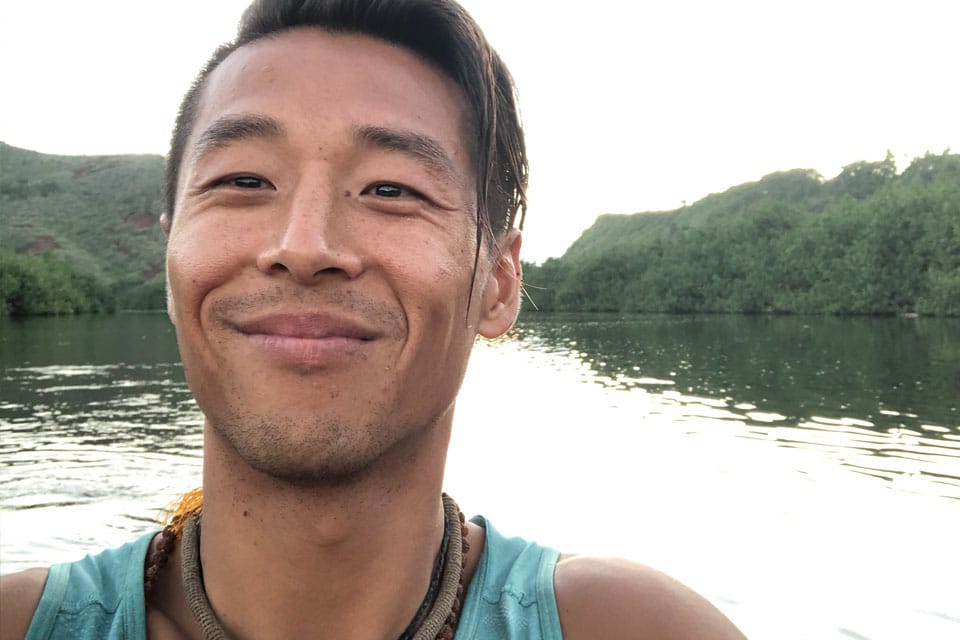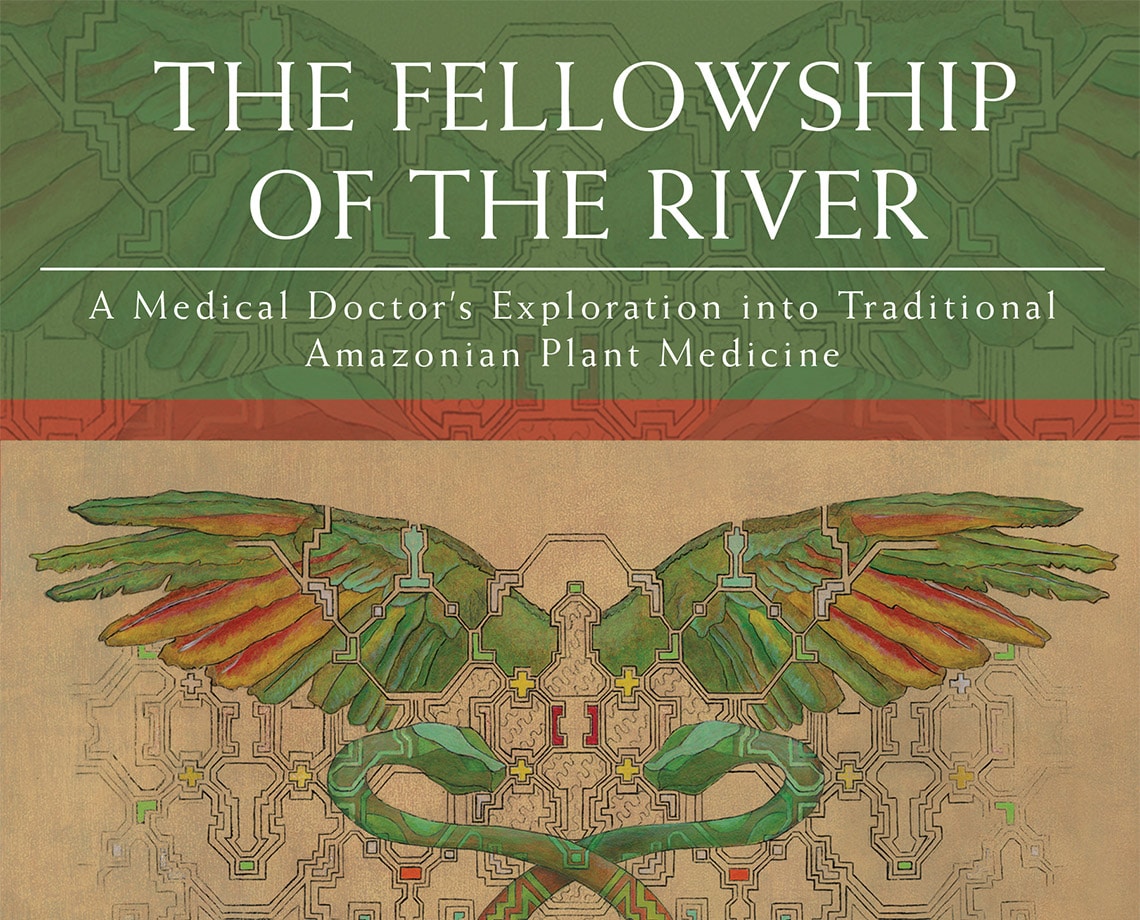
Any time someone trained in fields of medicine and psychology comes forward to speak about the benefits of psychedelics, it helps to shift our cultural perspective on the validity of these powerful substances. As such, we were delighted when Samuel Lee, MD reached out to speak with us fresh from a visit to Iboga Wellness Center, a traditional iboga retreat center in Costa Rica that follows Bwiti traditions. Dr. Lee’s story is about his inner transformation from organized religion, Western medical education, and conventional psychiatry into an expanded view of universal connection, natural remedies, and psychedelic spirituality. We spoke with Samuel recently from his home in Los Angeles.
Thanks so much for speaking with us, Samuel. Can you share a little bit about your background with us?
I started as a religion major at Pacific Union College and graduated there in 2003 after doing all my prerequisites for medical school. I then went to Loma Linda University Medical School and went into psychiatry residency at Cedar Sinai Medical Center in Los Angeles, completing 3 years of psychiatry training there until they closed down their psychiatry department. I transferred to University of Washington in Seattle for my final year and completed the psychiatry residency program there.
For a year after that, I worked with Alzheimer’s and geriatric patients and then transitioned to adult outpatient psychiatry, where I’ve been working for the last 3 years. About 6 months ago, I quit my job as a psychiatrist after discovering my passion for pranayama and breathing. Since then, I’ve been exploring natural healing modalities such as breathwork, psychedelics, and all sorts of other stuff. I’m in a transition state in my career right now.
I’m curious to hear what your history with psychedelics has been and what lead you to Iboga Wellness Center.
I began delving into psychedelics later in my 20’s when I started to become curious about their ability to help with different mental conditions. I like to call myself an experiential psychologist because I don’t like to recommend anything to my patients unless I’ve experienced it for myself. I started by exploring cannabis and found that this plant has so much to offer for all sorts of psychiatric conditions. I also looked at psilocybin, not just as in the studies and statistics regarding it, but also having some ceremonies with the medicine. Then I went into the exploration of ayahuasca and went to the Amazon and worked with the local shamans, and looked at the science and the research behind that. Most recently, for the last year or two, I’ve been reading about iboga and its potential to help with addiction, anxiety, and all sorts of conditions. During this break, I found Iboga Wellness Center. I really resonated with the traditional way they run it and made a trip down there recently, just 3 weeks ago, and explored that experience.
Was there something special about your recent iboga experience that set it apart from your previous psychedelic experiences? Or was it the latest in a chain of meaningful explorations?
I would definitely set iboga apart in a whole different class of psychedelics. It was very powerful. For me, it wasn’t so much about the visuals as you can get on ayahuasca or psilocybin; this was more about a benevolent grandfather spirit, and a very cleaning experience for the mind. Some people relate ayahuasca to the heart, and I would say iboga is oriented to the mind. If you want to consider the mind like a computer, it was like a defragmenting process. For people who struggle with meditation, it can be a powerful way to directly experience being the observer behind your thoughts. For me, it was a beautiful way to see firsthand where limiting and conditioned beliefs come from, their origins, and being able to watch them like a cloud passing over your head rather than attaching to them.
You mentioned studying religion. How has your experience with psychedelics in general, or iboga in particular, changed your perspective on religion and spirituality?
This is just my personal experience of course, but I had a lot of deeply-seated religious programming, firmly held beliefs that sometimes religions claim are the exclusive path to the truth or enlightenment. Different religions will teach different avenues and different doctrines on how to get to “the truth.” Sometimes religions will limit people into a box, a box of beliefs, and limit freedom and the ability to live a free life. Religion can separate people because of these beliefs: if you believe something different than me, then automatically there is a separation.
Iboga was a beautiful way of showing me where these deep seated beliefs were programmed, and where these boxes were formed that limited my freedom. It was able to not only show me where these beliefs were coming from, but also to deprogram them so that I could expand my sense of spirituality and see that there are many different paths that can lead to truth or enlightenment. It breaks the boxes of separation and allows the mind to be cleansed of limiting, separating beliefs so that it can once again be open to the truth.
If you look at the history of religion, oftentimes religious beliefs can lead people from separation into putting others down or even harming them. There have been many “holy wars” in the past, and in the name of “love” or certain religious figures or doctrines, people can cause great violence on each other. I found iboga to be really powerful in deprogramming these beliefs and granting access to a broader, more open perspective. Everyone’s perspective is valid and there are different ways to find truth for each person.
That’s beautiful. I’m curious, what has that felt like to you experientially, going through that defragging process? What is your felt experience of that?
For me personally, it’s been a sense of peace, and a sense of not having to search outside of myself for answers anymore. It’s been a return into the safety of my body, an acceptance of my physical embodiment, and learning that every answer that I seek is within me, and not without. It’s brought a stillness to my mind so that in my meditation practice I can better observe my thoughts, and when I need to have an answer I go inward in order to connect with my higher self, or source, and find the answers that lie within.
Were you part of any formal religion before these experiences?
I was raised as a strict Christian, a Seventh-day Adventist, and my father is a Seventh-day Adventist minister. There were a lot of beautiful things I learned from this religion, but also many beliefs that ended up not serving me. I would say for the last 5-10 years I haven’t really had a religion- I would say, like Bob Marley, that my religion is love- but there were definitely some deep-seated beliefs from childhood that were passed on to me and remained with me unconsciously. For me, psychedelics have been a beautiful journey to see what I actually believe for myself, and going within to find my answers instead of looking for them outside of myself.
We are very grateful to Samuel for speaking with us and sharing his story. Stay tuned for a follow-up interview that delves deeper into movement and pranayama. If you would like to connect with Dr. Lee, you can reach him at [email protected].










